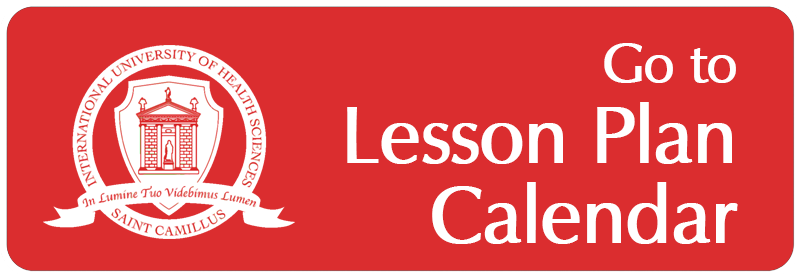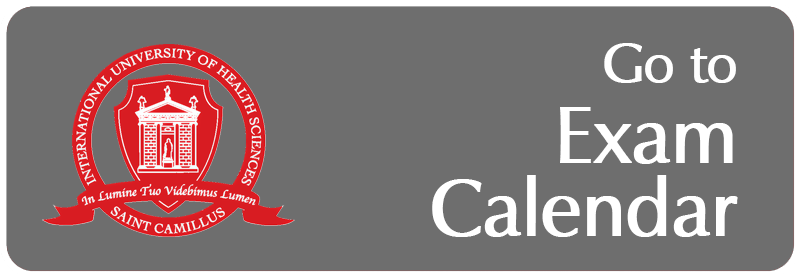- ENGLISH/ITALIANO
- About Us
- Courses
- Teaching staff
- Research
- Enrolment
- Student services
- Faq and Contact
- News
- Vacancies
- Work with us
Graduates in BSc Biomedical Laboratory Techniques are the health professionals who are responsible, within the laboratory structures, for the correct fulfillment of the analytical procedures and for their work; they carry out their own work activity with professional – technical autonomy, in direct collaboration with the graduate personnel of the laboratory, who are in charge of the various respective operational responsibilities. The first level Bachelor of Science Degree in Biomedical Laboratory Techniques (L/SNT-3 Degree Class in Technical Health Professions) is aimed at training healthcare professionals who are entrusted with the duties set forth by the D. M. of the Ministry of Health n. 745 of 26th September 1994, and subsequent amendments and additions, and which must hold the following qualifications: background of scientific and theoretical – practical competence necessary to be qualified to practice the profession of Biomedical Laboratory Sanitary Technician and of the methodology and culture necessary for the practice of constant teaching, as well as a level of professional, decision-making and operational autonomy deriving from a theoretical and practical training that also includes the acquisition of behavioral skills and that is achieved in the same specific work context, so as to ensure, at the end of the training course, full mastery of all the necessary skills and their immediate spending at the workplace;
The objective is to train new graduates with high theoretical and practical knowledge of innovative methodologies, so as to make them more attractive in specific work environments. Graduates will be able to access advanced training courses, first level master’s degrees and master’s degrees, as per the relevant announcements of selections.
Graduates in Biomedical Laboratory Techniques may find work opportunities either as an employee in public laboratory facilities (Hospitals, University Polyclinics, Research Institutes, Zoo-prophylactic Institutes and others) or private (private analyses laboratories and others),or as solo practitioners
Formal teaching
This includes:
– lectures: dealing with one specific topic that is identified by a title and performed by a teacher with the help of computing and/or multimedia supports based on a predefined calendar and given to students enrolled to a specific course year and divided into small groups;
– seminars: didactic activities with the same characteristics as lectures but carried out contemporarily by many teachers with different competences and, as such, noted in the lesson registers in each one of them.
Informal teaching It deals with interactive didactic activities aimed at small groups of students and coordinated by a tutor whose task is that of facilitating the students in the acquisition of knowledge, abilities and behavioral models. Learning mainly occurs through stimuli deriving from problem solving and the use of methodological skills needed to resolve them and taking decisions as well as through the direct and personal use of actions (gesture and relational) in practical exercises and/or attending clinical departments, surgeries, territorial facilities and research laboratories.
A) Courses. The integrated teaching courses are held by one or more teachers in function to the specific objectives assigned to the course. The specific objectives of the individual courses that are contained in the exam programs and their programming are proposed annually by the course teachers within the start date of the enrolment for the new academic year.
B) Professional activities. During the three year degree course, the student is required to acquire the professional specifications in the nursing field by carrying out internships in facilities identified by the degree course council (CCL) and in the defined periods. The internship can also be done in developing countries.
C) Elective activities. The degree course council organizes the offer of elective didactic activities that are created with lectures, seminars, interactive courses with small groups among which the student is able to exercise their own personal option until achieving an overall number of 6 credits. Each student autonomously chooses the elective activities among the didactics supplied.
Language of the Programme: Italian.
Head of School: Prof. Daniele Armenia
Programme director: Dr. Fabbio Marcuccilli (fabbio.marcuccilli@unicamillus.org)
UniCamillus graduates are very satisfied with their study experience, as revealed by the 2023 Almalaurea Report (in italian), which shows that 100% of our BSc graduates find the degree obtained to be extremely useful.
⇒ Download the SUA – Degree programme satisfaction and graduates’ employment status report for the BSc Biomedical Laboratory Techniques (in italian).
This includes all the courses (plus corresponding ECTS credits and codes) offered under the programme for the academic year and year of enrolment mentioned below:
This includes all the courses (plus name of tutor(s) and number of hours) offered under the programme for the academic year mentioned in the validated list of modules taught file below:
Candidates who, are willing to take the admission test must meet one of the following requirements:
In order to complete the registration to the admission test, each candidate must follow the instructions on the dedicated page and pay the test registration fee.
Candidates are admitted through an admission test. The admission procedure differs for EU and non-EU candidates.
⇒ For further details, please refer to the dedicated web page – Calls for application.


Calendar Academic Year 2024-2025
Calendar Academic Year 2023-2024
Calendar Academic Year 2022-2023
Calendar Academic Year 2021-2022
In order to be eligible for the final exam, students must achieve all the CFU in the educational activities as in the study plan of reference, including those of the clinical practice and seminar activities.
The Final Exam consists of a State Exam qualifying to practice the profession and is composed by:
Any information regarding the admission requirements, the final exam, the Committee, the final grade and its determination is available within the Regulations for the graduation of the bachelor degree courses in the health professions.
→ Download the Regulations
→ Download the guide to dissertation proposal
→ Download the guide to graduation application
In the regulations you can find the information concerning the deadline and the online procedure to be followed by every undergraduates. Here below the annexes that must be used for the drafting of the dissertation:
Annex no. 1 – Deadlines Time Schedule (Annex_1 pdf file);
Annex no. 2 – Suggestions for the Drafting of the Dissertation (Annex 2 pdf file);
Annex no. 3 – Cover of the Dissertation facsimile (Annex_3 word file);
Annex no. 4 – Frontispiece of the Dissertation (Annex_4 word file);
Annex no. 5 – Logo (Annex_5 png file);
Annex no.6 – Research originality statement and declaration of academic honesty (Annex_6 pdf file).
Annex no.7 – Template Power Point (Annex_7 ppt file).
Should you need further information regarding the Graduation procedure, please contact the Graduation Office at graduation@unicamillus.org.
Our study programmes are at the heart of the University’s educational mission and are continuously being updated by the Quality Assurance Group set up for each programme.
The Quality Assurance Group is composed of the Head of School, a Programme Director, a faculty member and a student representative. The Quality Assurance Group contributes to the design, implementation and verification of all activities related to each programme, ensuring their correct and smooth running in coordination with the University’s Quality Committee and other Quality Assurance members.
During the transitional period provided for in the Statute, the Quality Assurance Group is also called upon to perform the functions normally assigned to the Review Group.
Its responsibilities include:
1) identifying potential improvements for the programme, setting deadlines and indicators to verify the degree of implementation;
2) verify the achievement of predetermined objectives or identify reasons for non-achievement or partial achievement;
3) preparation of the Annual Monitoring Sheet;
4) preparation of the Cyclical Review Report.
Quality Assurance Group for the Biomedical Laboratory Techniques programme
“Reports from students” is the service through which UniCamillus students can report and notice on topics such as teachings or organization. It aims to promote efficient and direct communication between students and University Offices.
Contacts:
→ Reports to Programme Director: fabbio.marcuccilli@unicamillus.org
→ Reports to Didactic Administrative Office of the Degree Course: hp.didactics@@unicamillus.org
→ Request related to academic career: office@unicamillus.org
→ Requests to Student Representatives (Representatives’ task is to collect student suggestions and recommend activities to encourage students to actively participate in university life):
⇒ BSc in Biomedical Laboratory Techniques 2024-2025 Teaching Regulations (in Italian)
⇒ BSc in Biomedical Laboratory Techniques 2023-2024 Teaching Regulations
⇒ BSc in Biomedical Laboratory Techniques 2022-2023 Teaching Regulations
⇒ BSc in Biomedical Laboratory Techniques 2021-2022 Teaching Regulations
⇒ BSc in Biomedical Laboratory Techniques 2020-2021 Teaching Regulations
⇒ BSc in Biomedical Laboratory Techniques 2019-2020 Teaching Regulations
⇒ BSc in Biomedical Laboratory Techniques 2018-2019 Teaching Regulations
⇒ BSc in Biomedical Laboratory Techniques 2024-2025 Internship Regulations (in Italian)
⇒ BSc in Biomedical Laboratory Techniques 2023-2024 Internship Regulations (in Italian)
⇒ BSc in Biomedical Laboratory Techniques 2022-2023 Internship Regulations (in Italian)
⇒ BSc in Biomedical Laboratory Techniques 2021-2022 Internship Regulations (in Italian)
⇒ BSc in Biomedical Laboratory Techniques 2020-2021 Internship Regulations (in Italian)
⇒ BSc in Biomedical Laboratory Techniques 2019-2020 Internship Regulations (in Italian)
⇒ BSc in Biomedical Laboratory Techniques 2018-2019 Internship Regulations (in Italian)
–Final Exam Regulations – Attachments and details to the Graduation section